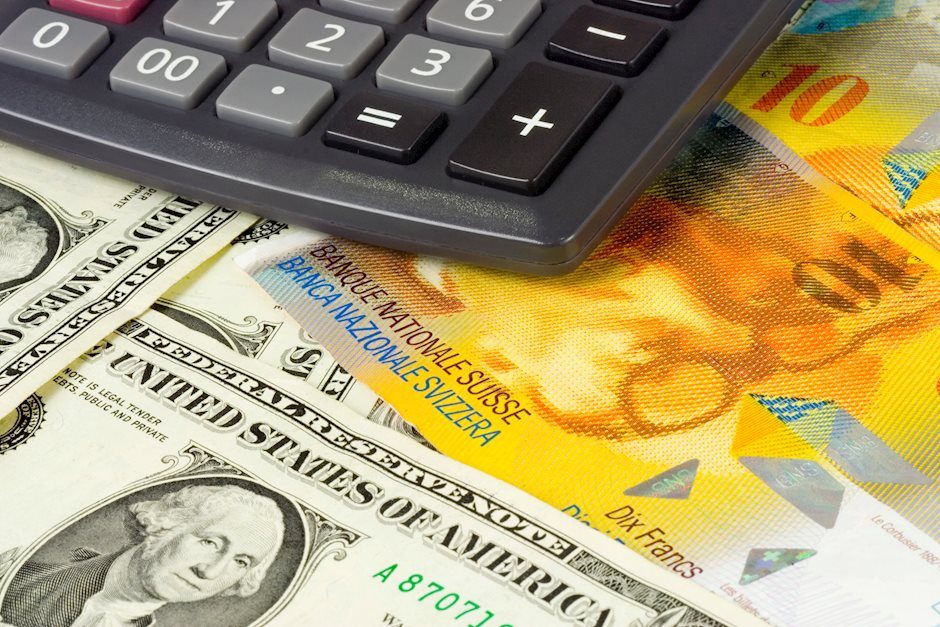USD/CHF attracts some buyers above 0.8800 amid mounting Russia-Ukraine tensions
- USD/CHF rebounds to near 0.8835 in Wednesday’s early European session.
- Markets have pared bets for a 25 bps interest-rate cut by the Fed at the December meeting.
- Any signs of escalating tensions between Russia and Ukraine could boost the CHF, a safe-haven currency.

The USD/CHF pair recovers some lost ground to around 0.8835, snapping the three-day losing streak during the early European session on Wednesday. The growing expectations for a less aggressive policy easing by the Federal Reserve (Fed) provide some support to the pair. Later on Wednesday, the Fed Lisa Cook and Michelle Bowman are set to speak.
The hawkish remarks from Fed Chair Jerome Powell lifts the USD broadly. Powell said that he wasn’t 'in a hurry' to lower interest rates, which reduced the possibility of rate cuts in December to less than 60%, down from 82% earlier in the week. Kansas City Fed President Jeffrey Schmid said it remains uncertain how far interest rates can fall, but the recent cuts by the Fed indicate confidence that inflation is heading toward its 2% target.
On the Swiss front, heightened tensions between Russia and Ukraine, and its allies in the West might boost the safe-haven flows, benefiting the Swiss Franc (CHF). Russia’s Defense Ministry said on Tuesday that Ukraine fired six ballistic missiles at a facility in Bryansk and that ATACMS missiles had been used in the attack.
Swiss Franc FAQs
The Swiss Franc (CHF) is Switzerland’s official currency. It is among the top ten most traded currencies globally, reaching volumes that well exceed the size of the Swiss economy. Its value is determined by the broad market sentiment, the country’s economic health or action taken by the Swiss National Bank (SNB), among other factors. Between 2011 and 2015, the Swiss Franc was pegged to the Euro (EUR). The peg was abruptly removed, resulting in a more than 20% increase in the Franc’s value, causing a turmoil in markets. Even though the peg isn’t in force anymore, CHF fortunes tend to be highly correlated with the Euro ones due to the high dependency of the Swiss economy on the neighboring Eurozone.
The Swiss Franc (CHF) is considered a safe-haven asset, or a currency that investors tend to buy in times of market stress. This is due to the perceived status of Switzerland in the world: a stable economy, a strong export sector, big central bank reserves or a longstanding political stance towards neutrality in global conflicts make the country’s currency a good choice for investors fleeing from risks. Turbulent times are likely to strengthen CHF value against other currencies that are seen as more risky to invest in.
The Swiss National Bank (SNB) meets four times a year – once every quarter, less than other major central banks – to decide on monetary policy. The bank aims for an annual inflation rate of less than 2%. When inflation is above target or forecasted to be above target in the foreseeable future, the bank will attempt to tame price growth by raising its policy rate. Higher interest rates are generally positive for the Swiss Franc (CHF) as they lead to higher yields, making the country a more attractive place for investors. On the contrary, lower interest rates tend to weaken CHF.
Macroeconomic data releases in Switzerland are key to assessing the state of the economy and can impact the Swiss Franc’s (CHF) valuation. The Swiss economy is broadly stable, but any sudden change in economic growth, inflation, current account or the central bank’s currency reserves have the potential to trigger moves in CHF. Generally, high economic growth, low unemployment and high confidence are good for CHF. Conversely, if economic data points to weakening momentum, CHF is likely to depreciate.
As a small and open economy, Switzerland is heavily dependent on the health of the neighboring Eurozone economies. The broader European Union is Switzerland’s main economic partner and a key political ally, so macroeconomic and monetary policy stability in the Eurozone is essential for Switzerland and, thus, for the Swiss Franc (CHF). With such dependency, some models suggest that the correlation between the fortunes of the Euro (EUR) and the CHF is more than 90%, or close to perfect.
Author

Lallalit Srijandorn
FXStreet
Lallalit Srijandorn is a Parisian at heart. She has lived in France since 2019 and now becomes a digital entrepreneur based in Paris and Bangkok.

















